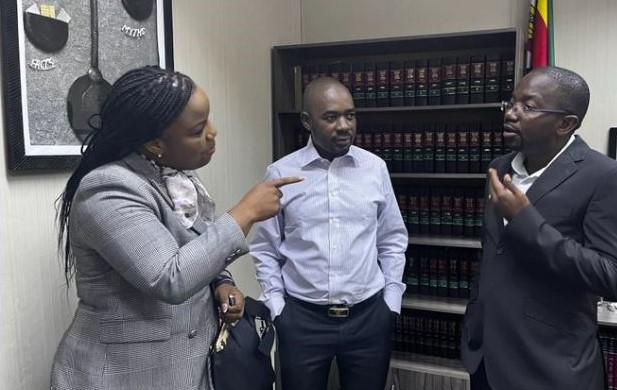News / National
Mpofu gives public advice to Chamisa
3 hrs ago | Views

Prominent Zimbabwean lawyer Advocate Thabani Mpofu has offered candid public advice to his close friend, Nelson Chamisa on how to understand and engage with a key constituency in Zimbabwe's political landscape - the strategic and influential middle class.
Chamisa, who has recently returned to active politics after a lengthy break, was urged by Mpofu to recognise the complexities of voter psychology and behaviour, particularly through the lens of the Rational Choice Model in political science.
The model, Mpofu explained, suggests that most voters are not deeply loyal to political leaders or parties and make their choices based on pragmatic calculations rather than emotional allegiance. As political scientist Ivor Crewe observed, "votes are up for grabs."
"There exists a segment of the electorate that, while not ideologically or emotionally aligned with Chamisa, nonetheless desires his political success primarily as a means to an end: the removal of ZANU PF from power," Mpofu said.
According to Mpofu, this support is instrumental rather than unconditional - driven by frustration with ZANU PF's rule, socio-economic hardship, and political exclusion. However, it is often accompanied by skepticism toward opposition politics, shaped by past disappointments.
He noted that this group - largely middle class and select elite - wields significant political influence due to its access to resources, information, and networks. But their loyalty is conditional, making them quick to withdraw support if opposition strategies falter.
"Maintaining engagement with this group requires nuanced outreach that acknowledges their frustrations without alienating them," Mpofu warned. "Burning bridges with these voters risks not only immediate electoral losses but also the erosion of a critical constituency that aspires to democratic transformation."
Mpofu stressed that such voters are rational actors seeking change but with the ability to opt out of political engagement if disillusioned.
"The fact that you do not understand them does not make them wrong much as the fact that you believe in your passion does not make you right," Mpofu cautioned.
Despite these complexities, Mpofu reaffirmed his belief in Chamisa's leadership:
"At the end of it all, Chamisa remains, by far, our best foot forward."
Mpofu and Chamisa, both lawyers and devout Christians, have a long-standing personal and professional relationship - their offices are next door to each other, and they collaborate closely on political and civic matters.
Chamisa, who has recently returned to active politics after a lengthy break, was urged by Mpofu to recognise the complexities of voter psychology and behaviour, particularly through the lens of the Rational Choice Model in political science.
The model, Mpofu explained, suggests that most voters are not deeply loyal to political leaders or parties and make their choices based on pragmatic calculations rather than emotional allegiance. As political scientist Ivor Crewe observed, "votes are up for grabs."
"There exists a segment of the electorate that, while not ideologically or emotionally aligned with Chamisa, nonetheless desires his political success primarily as a means to an end: the removal of ZANU PF from power," Mpofu said.
According to Mpofu, this support is instrumental rather than unconditional - driven by frustration with ZANU PF's rule, socio-economic hardship, and political exclusion. However, it is often accompanied by skepticism toward opposition politics, shaped by past disappointments.
He noted that this group - largely middle class and select elite - wields significant political influence due to its access to resources, information, and networks. But their loyalty is conditional, making them quick to withdraw support if opposition strategies falter.
"Maintaining engagement with this group requires nuanced outreach that acknowledges their frustrations without alienating them," Mpofu warned. "Burning bridges with these voters risks not only immediate electoral losses but also the erosion of a critical constituency that aspires to democratic transformation."
Mpofu stressed that such voters are rational actors seeking change but with the ability to opt out of political engagement if disillusioned.
"The fact that you do not understand them does not make them wrong much as the fact that you believe in your passion does not make you right," Mpofu cautioned.
Despite these complexities, Mpofu reaffirmed his belief in Chamisa's leadership:
"At the end of it all, Chamisa remains, by far, our best foot forward."
Mpofu and Chamisa, both lawyers and devout Christians, have a long-standing personal and professional relationship - their offices are next door to each other, and they collaborate closely on political and civic matters.
Source - businessdaily.co.zw




































